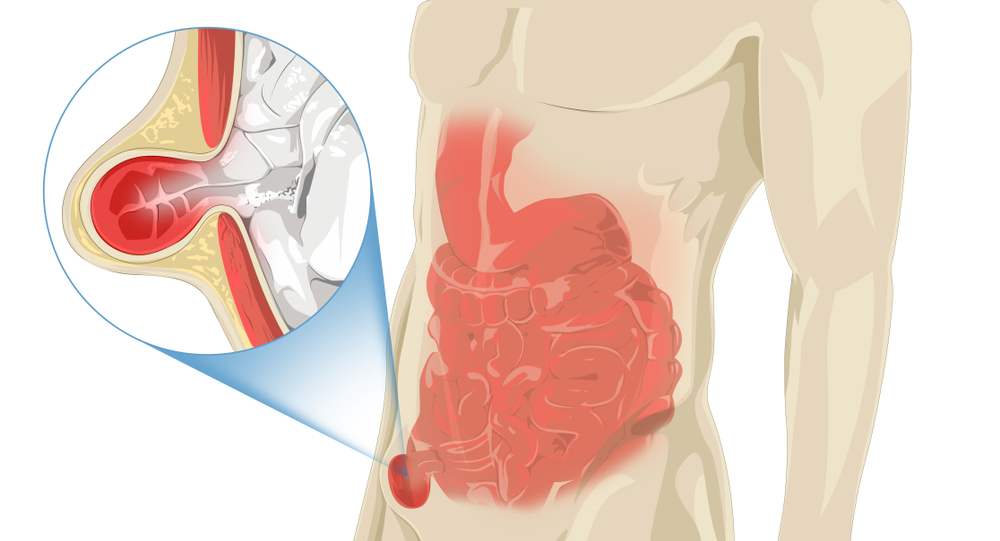Hernias usually don’t go away on their own. Hernia treatment usually involves minimally invasive surgical procedures for a quicker recovery.
What causes hernias?
Hernias are common. The abdomen or groin muscles become weak from aging or repeated strains. In turn, an organ or body part bulges through the muscle wall and causes pain. Yet, some people don’t experience severe symptoms. Very often, a doctor or a significant other discovers the hernia.
People who do heavy lifting are somewhat at risk for hernias. Those who struggle with obesity, chronic cough or chronic constipation can also get hernias. Women who have had more than one pregnancy also have a chance of developing a hernia.
There are many different types of hernias. The most common are inguinal hernias, umbilical hernias and incisional hernias.
How to treat a groin hernia
The quicker you treat your groin hernia with hernia surgery, the less difficult the treatment becomes. This is because the fascia (tissue that connects muscles and organs) hole gets larger over time. The organs inside the peritoneal cavity (the space between the abdominal wall and the internal organs) start to bulge out.
Even if you’re not experiencing pain, it’s important to treat your hernia. An untreated hernia can cause a piece of bowel to get stuck. If that happens, we can no longer push the hernia back in. If the bowel loses blood flow, it becomes a strangulated hernia that can cause the tissue to die – this leads to serious complications.
Hernia surgery and repair in older adults: watchful waiting
Sometimes we choose to delay hernia surgery in much older patients. This includes people with dementia or heart problems that may not recover well after anesthesia. In these patients, we watch the hernia to make sure it doesn’t become a serious medical problem. For patients who are active and healthy and have pain that interferes with normal activities – which most hernias do – we recommend a repair.
Open hernia repair surgery
During open surgery, we make a small incision over the groin, cutting through the muscle layers and repairing the fascia. We either use stitches or a piece of mesh which helps strengthen the abdominal wall.
Is hernia mesh safe?
When hernia repair occurs without a piece of mesh, a surgeon uses sutures (Canadian method) to repair the tissue. This method creates tension on the fascia. Studies have shown this approach can cause more pain at first because of the added tension and a greater chance of a recurrence.
Because the Canadian method has resulted in pain and hernias coming back, surgeons began using mesh to eliminate the tension. By relieving the tension, we’re able to reduce pain and the chance of a hernia reappearing.
Unfortunately, sometimes during an open surgery where the mesh lives, it can still cause pain.
Laparoscopic hernia surgery
To help patients recover more quickly and minimize pain, we offer a laparoscopic hernia surgery approach whenever possible. During this procedure, the surgeon makes small cuts in the lower belly and places the mesh using a thin tube with a camera on the end (laparoscope). This approach allows the surgeon to visualize the nerves from the inside and place the mesh away from the nerves and the farthest away from the bowel. Most patients are back to work within four days.
Robotic hernia repair
Technology to repair hernias has evolved over the years — from the Shouldice technique (using your tissue and sutures) to tension-free (using mesh) and today with the robotic option. During a robotic-assisted hernia repair, the surgeon uses a device with a camera to control robotic arms that hold tiny surgical tools. The robotic arms can bend and turn in more ways than human hands, allowing for better precision. Today, we can do more outpatient procedures with smaller incisions and less recovery time.
Lifestyle changes for hernia
We recommend lifestyle changes for ventral hernias (hernias in the upper abdomen). Ventral hernias come from rapid weight gain or an area that became weak from surgery. Patients with a body mass index (BMI) between 30 and 40 work with a nutritionist to first address weight issues before we decide on hernia surgery.
A surgeon who specializes in hernia repair surgery can recommend the best approach based on your needs. At the Minnesota Hernia Center, Dr. Lucian Panait follows evidence-based practices using the latest technology and treatments. We perform thousands of hernia repair surgeries each year and always recommend the best plan based on your condition and needs.

